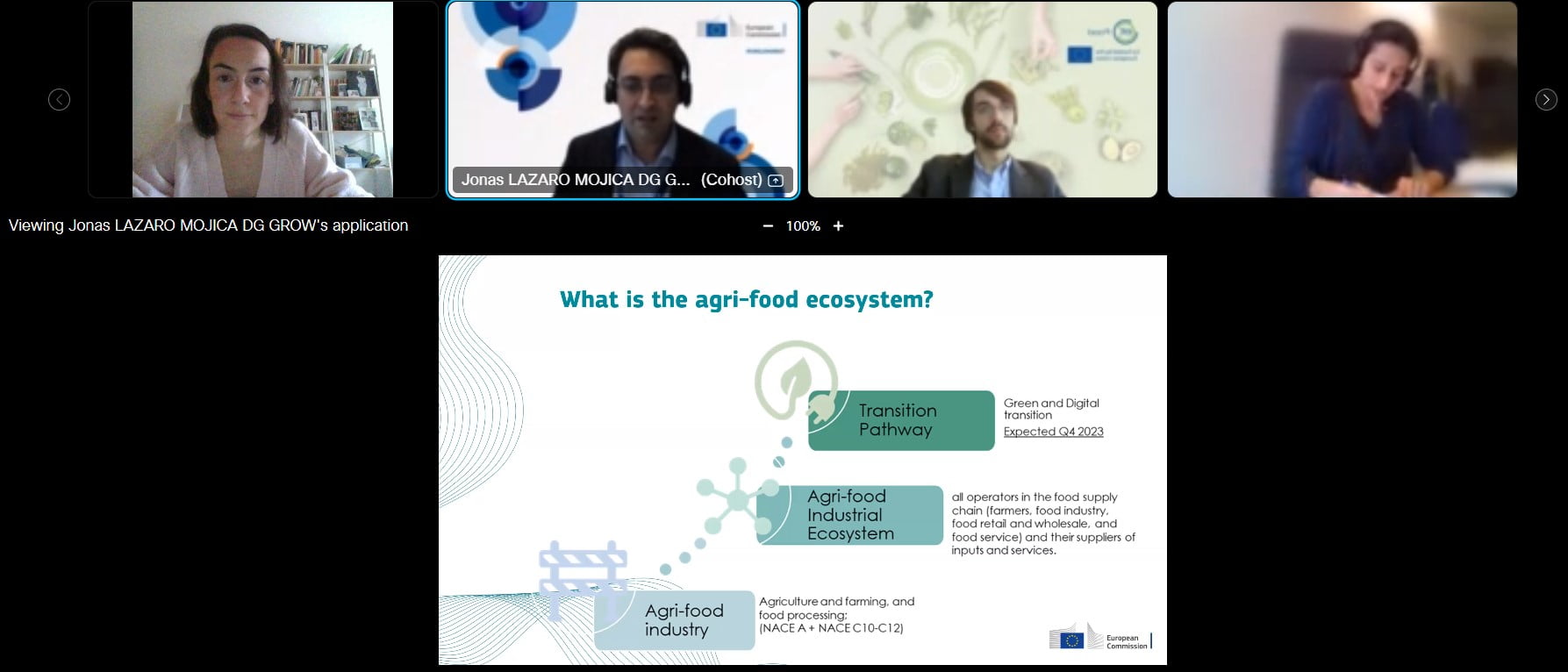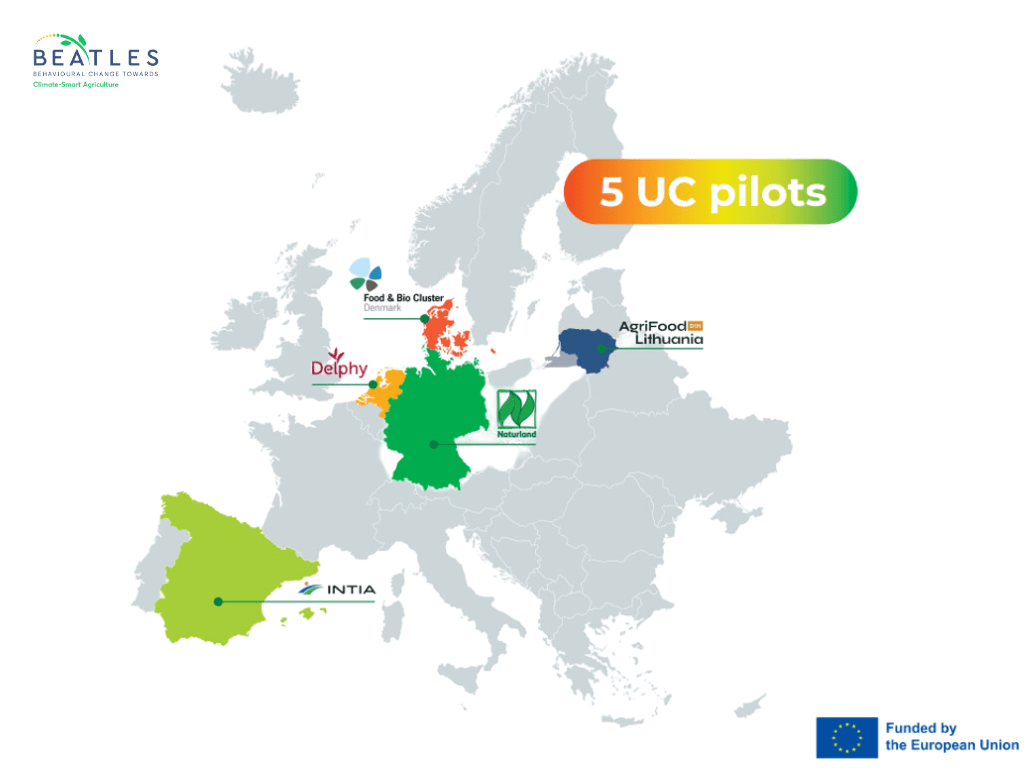The agri-food ecosystem is one of the fourteen industrial ecosystems identified in the updated New Industrial Strategy. In this Strategy, the European Commission (EC) department for growth (DG GROW), responsible for the EC’ policies on the single market, industry, entrepreneurship and small businesses, proposed the co-creation of transition pathways with stakeholders, as an essential collaborative tool for the green and digital transition of industrial ecosystems.
DG GROW services prepared a staff working document to outline the main issues relevant for the ecosystem to serve as a basis for this transition pathway. This was the subject of an EU consultation on co-creation of a transition pathway for a more resilient, sustainable and digital agri-food ecosystem, which received inputs until 19 September.
BEATLES Horizon Europe project provided feedback and partipated in the first workshop organised by DG GROW on Agri-food Transition Pathway: Uptake of technologies on 27 October.
The Agri-Food transition pathway is considered a joint vision for the future of the EU agri-food ecosystem. It would be the result of a co-creation process among stakeholders and it will lead to a concrete and actionable plan for the resilience, sustainable and digitalisation of the EU agri-food ecosystem.

The main EU legislation relevant to the agri-food sector was listed as follows: Green Deal and the strategies Farm to Fork and Biodiversity; Bioeconomy strategy; Blue economy strategy; Common Agricultural Policy; Common Fisheries Policy; Code of Conduct on responsible food business and marketing practices; future legislative Framework for Sustainable Food System and, of course, the New Industrial Strategy.
At the working session, Blanca Casares, Policy Expert at AEIDL, highlighted main benefits of the uptake of digitalisation technologies for a resilient and sustainable Agri-food ecosystem for people, planet and profit:
Digitalisation can help to enhance research through systematic approaches and align research with societal needs. It will contribute to sustainability by facilitating long-term planning, better use of indicators and other decision-support tools to monitor progress and the adoption of more sustainable agricultural practices and better management of natural resources. It also helps to foster a culture of cooperation through participation and the inclusion of open data and knowledge transfer. – Blanca said.
DG GROW will organise two further workshops on investment and funding and SME support. It is expected that by December 2023 or January 2024 the Transition Pathway will be defined.
Author: Blanca Casares (AEIDL)


